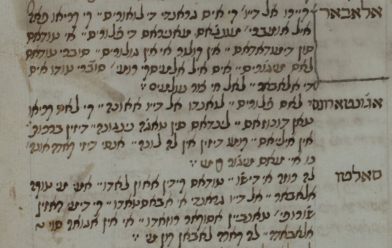CES
13. Los árboles llorosos (CES)
This song, derived in part from Greek traditional folk poetry (Κλαίνε τα δέντρη γιά νερó; cf. Havassy 2011a, pp. 129-130), was already very popular at the beginning of the twentieth century. The EMI collection includes no fewer than three recordings (Çakum Effendi, see below, no. 41 and La Gloria, see below, no. 68). Other early recordings, notably by Haim Effendi, to whom this song is often attributed, attest to its fame. Eventually it also became one of the most widespread items of the modern Sephardic repertoire and discography. None of the four early versions includes the famous refrain “Torno y digo / qué va ser de mí, / en tierras ajenas / yo me vo murir,” which forms an inseparable part of this song in the modern tradition (see Attias 1972, nos. 115, 116; Hemsi 1995, no. 87) and in most commercially recorded versions after World War II. The first documentation of this refrain appears on December 15, 1940 in Jevrejski Glas, a Jewish newspaper published in Sarajevo (Elazar 1987, p. 99). Elazar (p. 56 328) cites another version he heard in 1933, whose refrain is “Penso y digo / qué va ser de mí, / en tierras ajenas / no puedo vivir.” Oral testimonies pertaining to the singing of this song during the Holocaust indicate that it was at times performed with the version of the refrain “En tierras de Polonia / me vo murir” (Lévy 1989, p. 212; Refael 2008, no. 9.1). The last two stanzas of this recording are very rare and certainly unique within the many versions of this song.
Arboles lloran por lluvias
y muntañas por aires.
Ansí lloran los mis ojos
por ti, querid’ amante.Ven veras y ven verás,
ven verás y veremos.
L’amor que tenemos los dos,
ven mos espartiremos.Amor tenía y lo dejí
por mi menear [...?] cabeza.
Lo veo en otro poder
me muero de postema.Honor dejas por sospiros
yo nos hacer pur [...?]
Los llaves de mi corazón
yo ya las revolveo.







